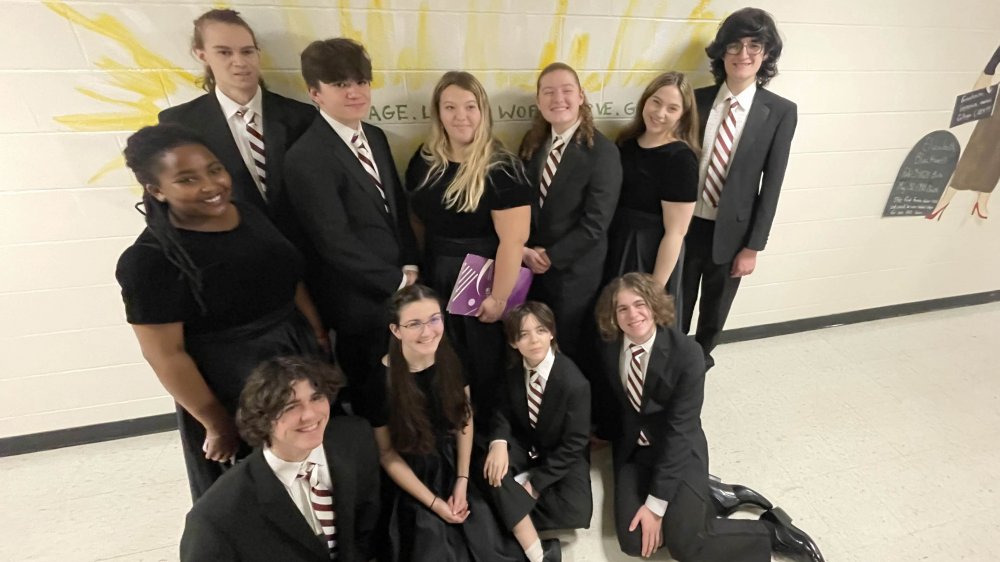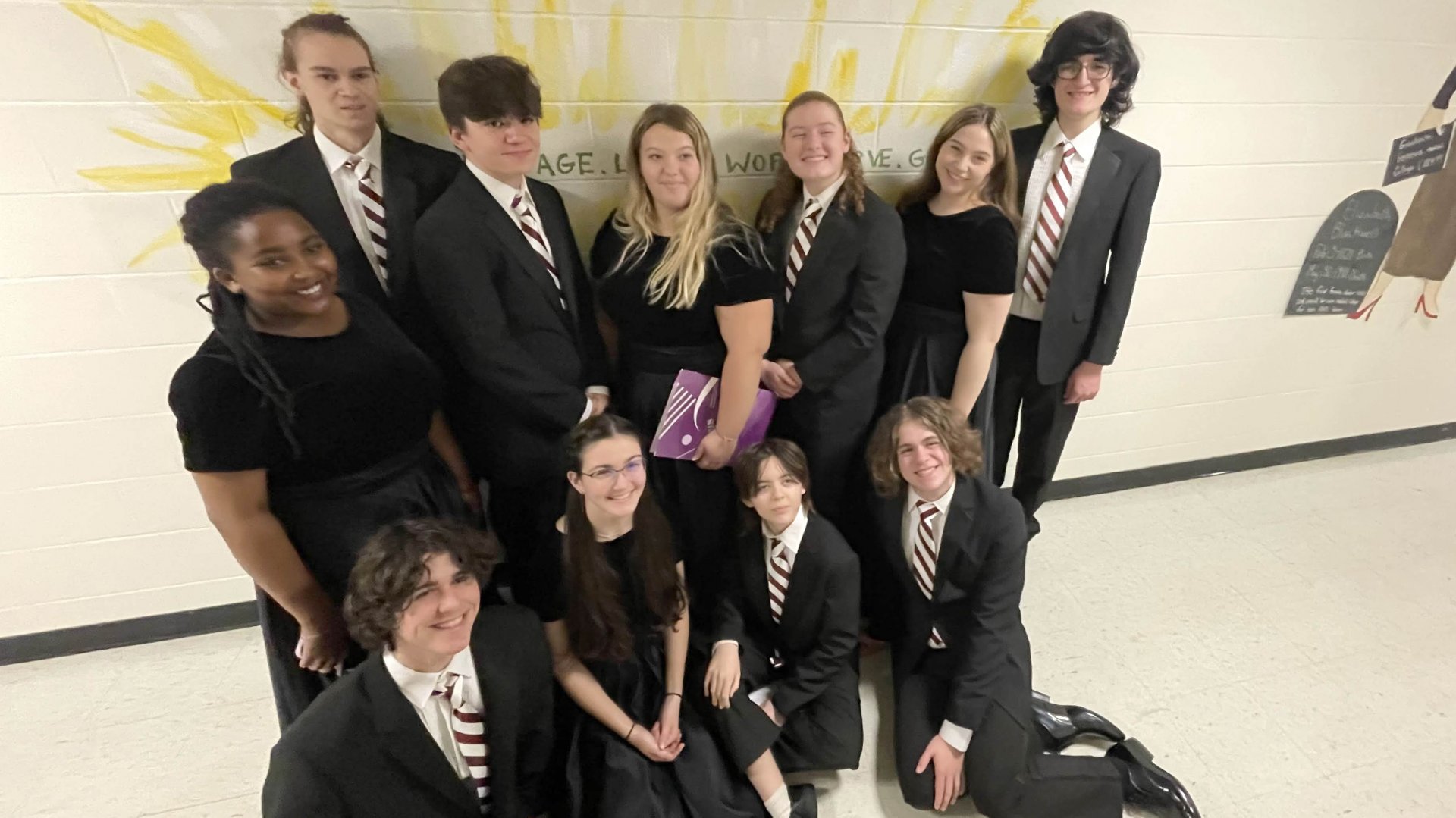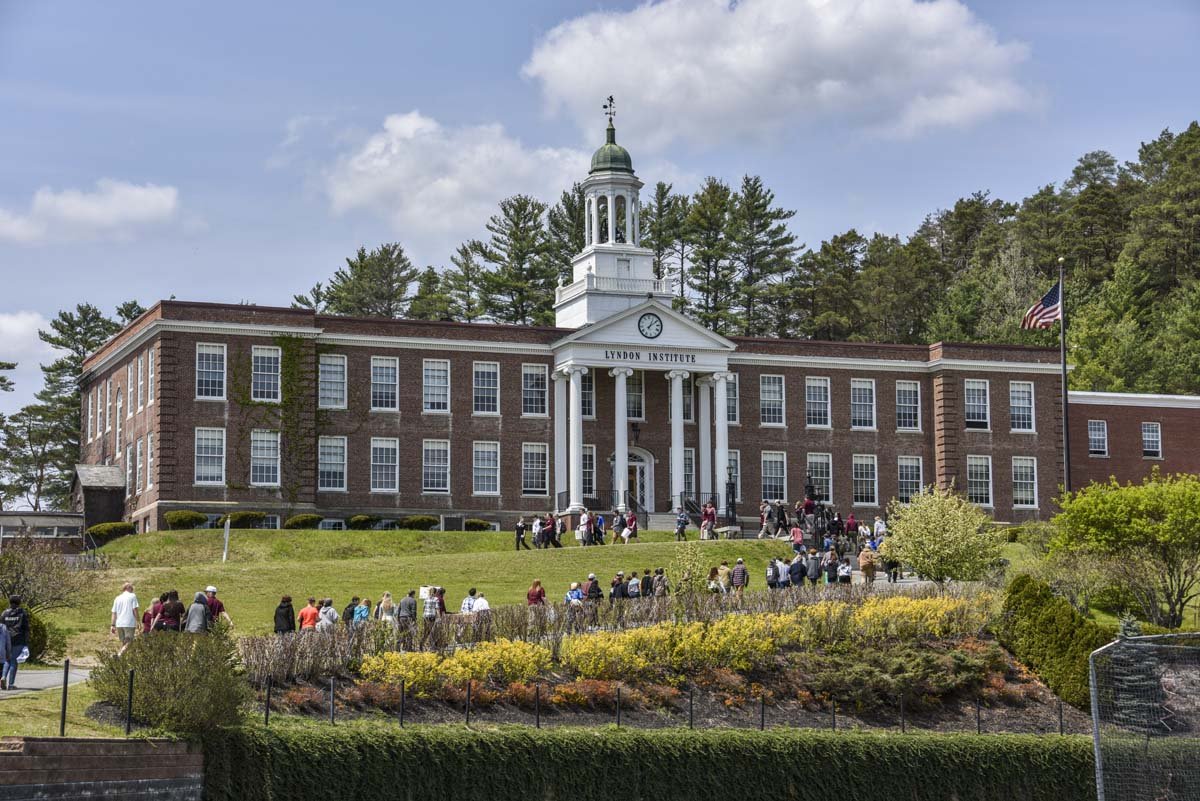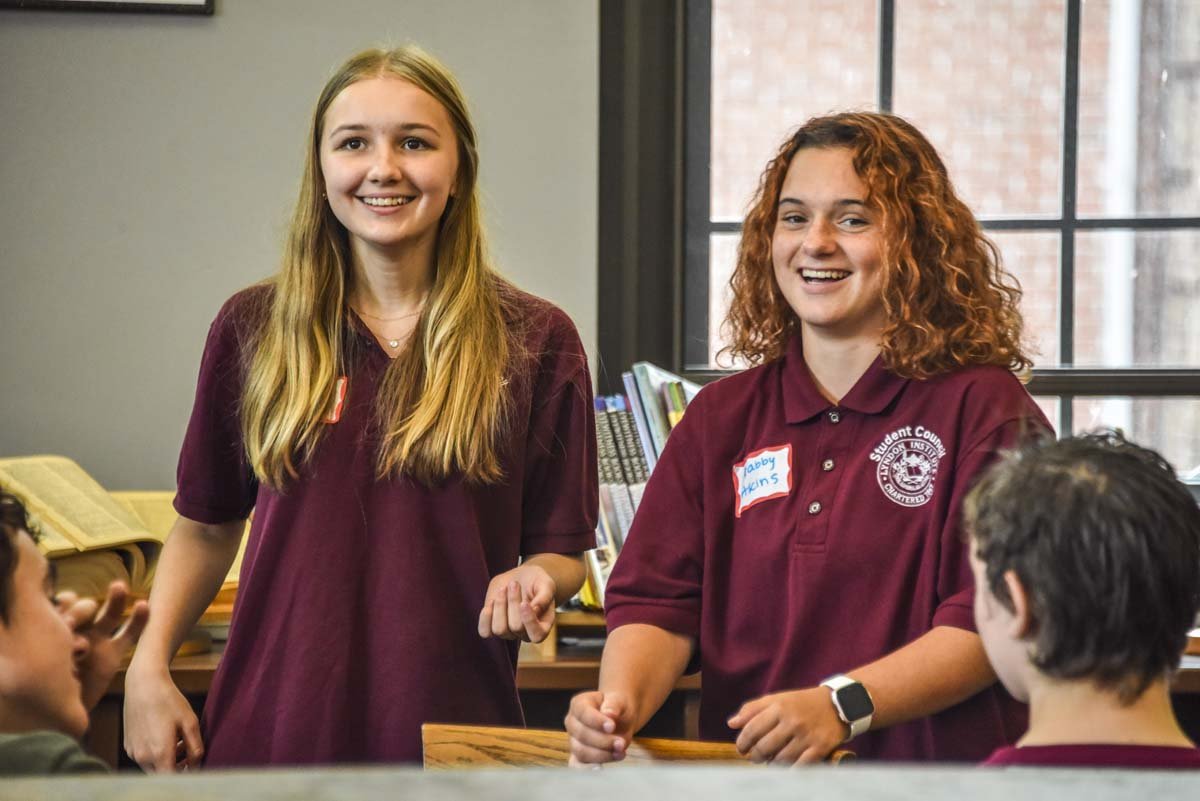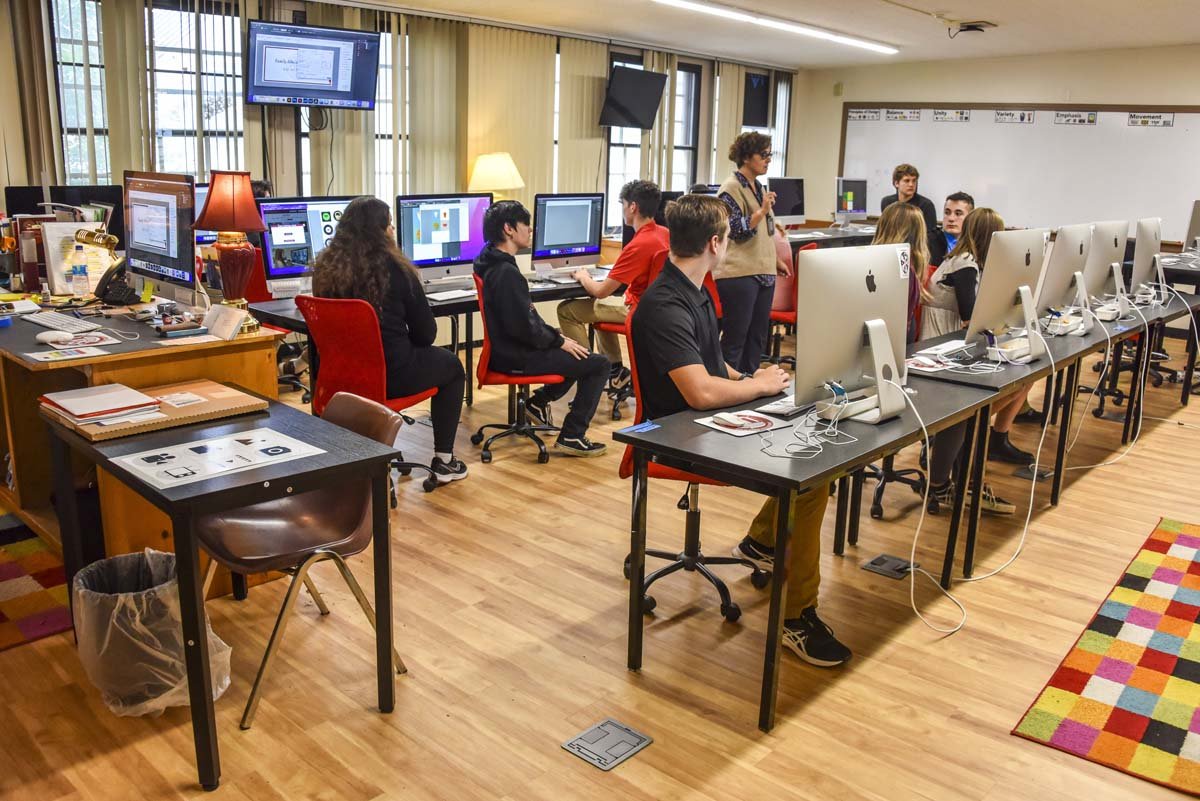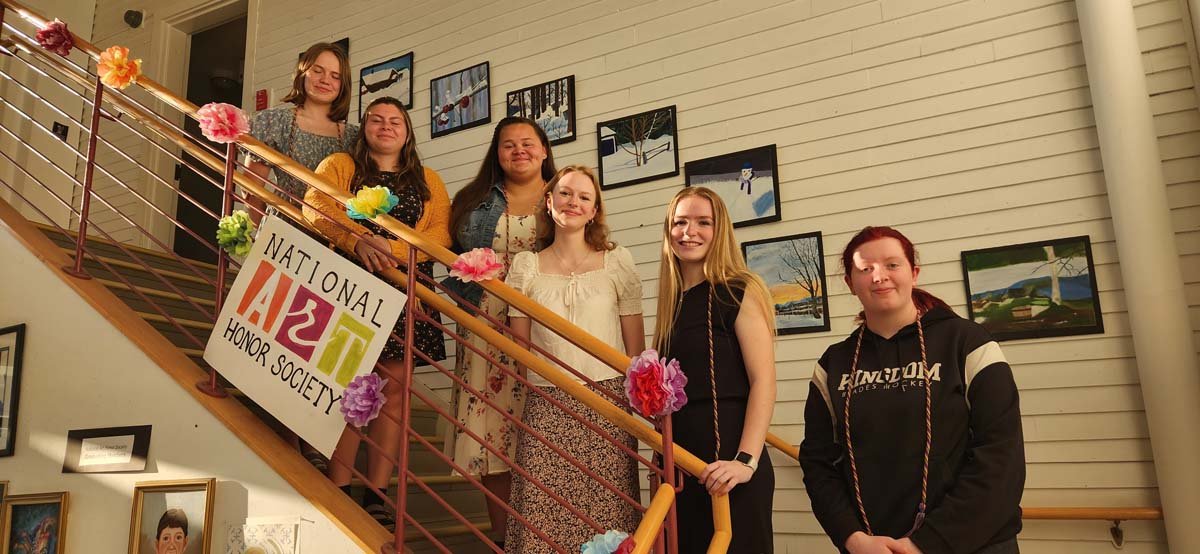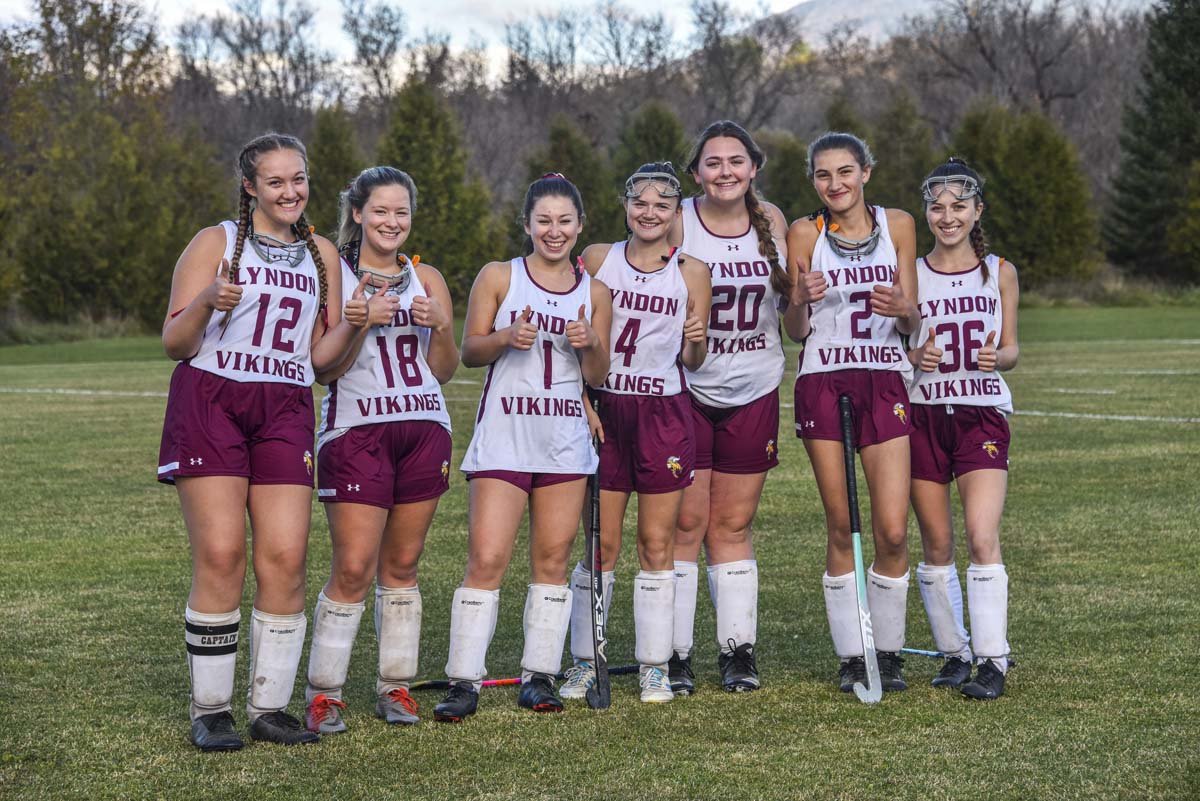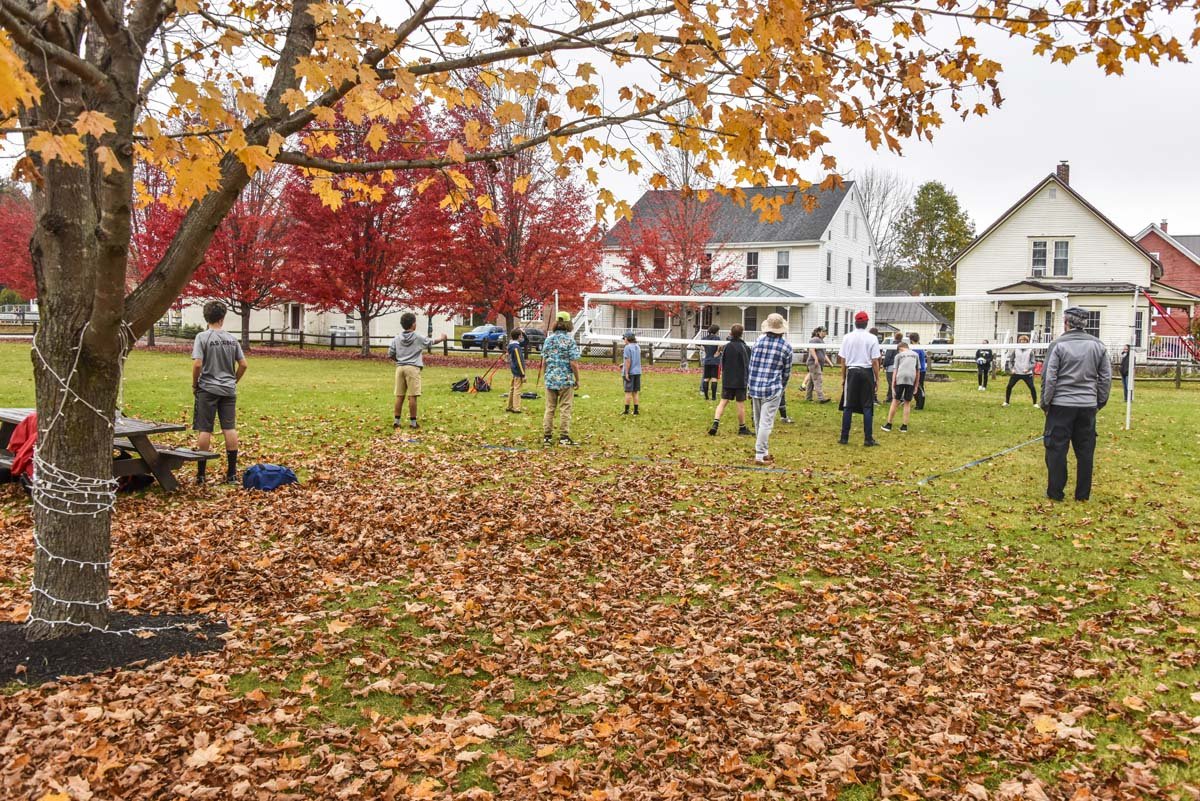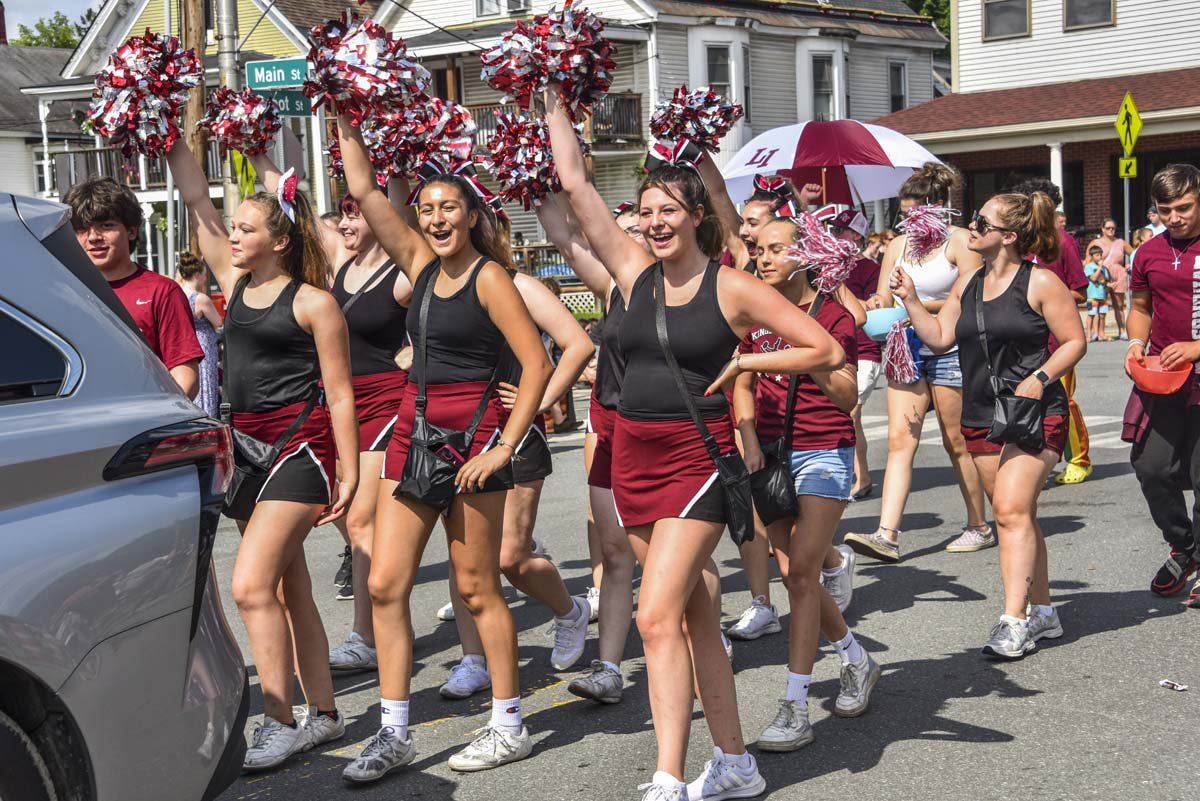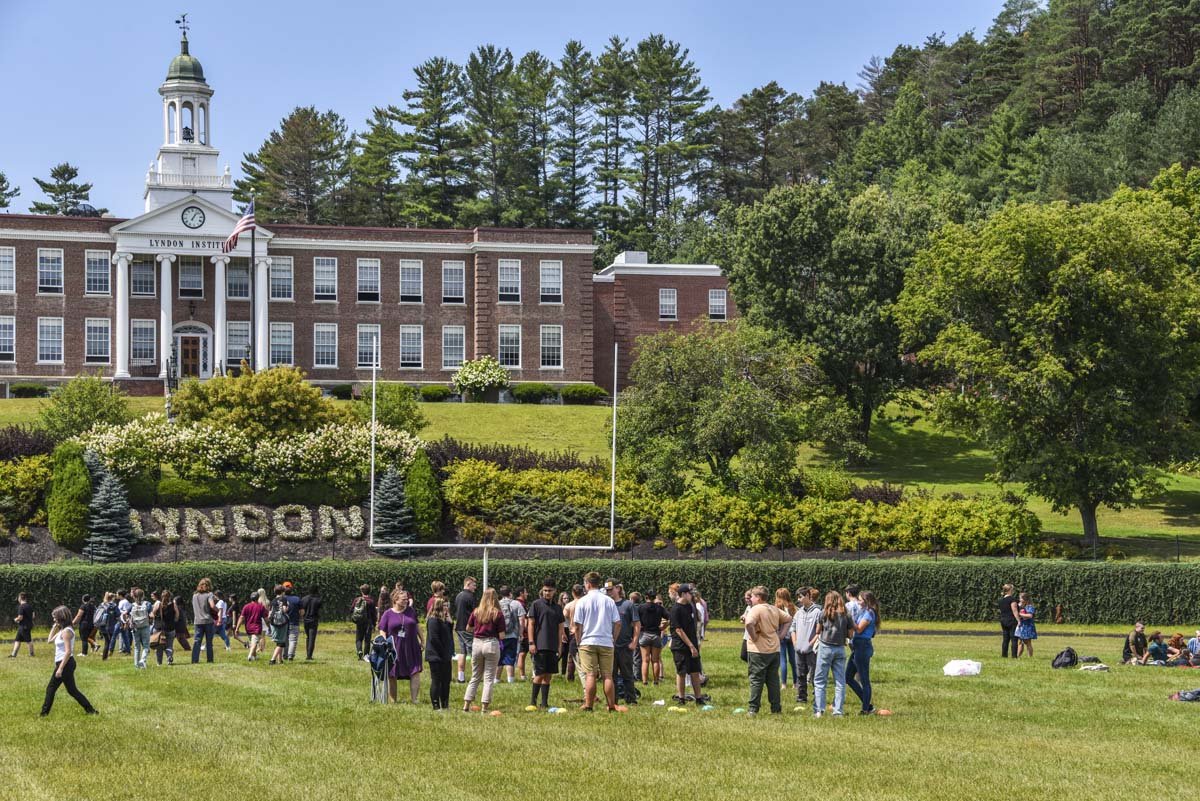- Our School
- Admissions
-
Academics
- Divisions and Faculty
- Commencement 2024
- January Term
- International Program (ESOL)
- College and Career Counseling
- Upward Bound
- Library/Monahan Academic Commons
- Career/Technical Education
- Lyndon Learning Collaborative
- Flexible Lyndon Institute Pathways (FLIP)
- Specialized Instruction
- Adult Continuing Education
- Lyndon Institute Course Catalog
- Student Services
- Arts
- Athletics
- Campus Life
- Support LI
- Alumni
« Back
Festival Days
January 8th, 2024
A Rich Musical Tradition at LI
By David Stahler Jr.
It’s Saturday morning in early December, a time when many teens are sleeping in. But on this cloudy day, a group of eleven Lyndon Institute students have risen early and made the trek down to Hartford High School in White River Junction, Vermont, to participate in the New England Music Festival Association’s (NEMFA) Solo and Ensemble Festival. They are performing both individually and together throughout the day in the hope of earning a place in the weekend festival next March, where hundreds of New England’s most talented singers and musicians will gather, not to compete but to perform together.
It’s kind of a big deal, a fact made apparent by the students’ appearance—they have donned their concert attire of black formal dresses and suits—and by the fact that they are performing in front of seasoned judges, many professional and collegiate vocal instructors, who are focusing on every aspect of their performance.
I sit in on several sessions. (Because the NEMFA auditions are billed as a “festival,” the public is able to sit in on the performances, a somewhat rare opportunity.) What also makes these auditions special is that each performance isn’t a simple audition.
The first session I slip into features a quartet of LI singers—Flower Keza, Macey Mawhinney, Cady Robillard, and Maida Stahler—performing “Il Est Bel et Bon,” a challenging work of early music by French composer Pierre Passereau. The pair of judges welcome the quartet, introductions are made, and the group is invited to begin.
A moment later the bland linoleum floor, cinder block walls, and cold fluorescent lighting of the room is transformed into a musical haven. Right away, the judges smile and begin to bob their heads in time with the song. The group finishes with a flourish, a brief moment of silence, and one of the judges—a youngish man with a red beard named Morgan Bothwell, Artistic Director for Monadnock Chorus in New Hampshire and a professor and conductor at both Keene State and Franklin Pierce University—stands up and comes around to join the group. Not something one would normally expect at a high school audition.
“Nice job!” he exclaims. “So let’s do some work on it. You okay with that?”
The four girls smile and nod. This is all part of the process.
“First, don’t start too small, otherwise you have nowhere to go down later on. Also, start a little slower.”
He runs them through the first part of their piece several times, noting their improvement. He offers a few other insights.
“So this is Early Music. The Medieval period, the Renaissance. Where would it have been performed?”
The students hesitate a moment.
“At court or in the street,” he offers. “Definitely not in a concert hall, right? So don’t feel like you have to stand stiff and upright. Plant your body, but you can move from there.”
The whole session lasts less than ten minutes, but it feels more like a practice than an audition. The rest of the festival goes by in similar fashion as the students split and regroup into different configurations throughout the day, circulating through a series of rooms and judges.
By the afternoon, the singers are spent but happy; the voices tired but the nerves gone. They ride home feeling good about their performances, feeling good about having been heard and having been taught.
It’s festival season at Lyndon Institute, a busy stretch through November and December where singers and instrumentalists prepare and audition for several festivals—District, All State, NEMFA—that will happen in the spring and take part in several others, including the Vermont District Jazz Festival and Madrigal Festival (aka “Madfest”) sponsored by the Vermont chapter of the American Choral Directors Association. All this in addition to their normal fall and Christmas concert preparations.
For music teacher and director Susanne Norwood, a fourteen year veteran of LI, this is all part of the experience. Norwood oversees every aspect of Lyndon’s music program—from chorus and select chorus to stage band and jazz band, as well as other courses from piano and guitar to AP Music Theory. If a student can play it or sing it, Norwood has a hand in making it work.
“These festivals are a key component of the music program,” she tells me. “They give our students an opportunity to pursue music beyond the classroom. And they help us develop musicians over time.”
While Norwood is always thrilled to have accomplished musicians join her program, she is devoted to the philosophy of creating ample space for new or budding musicians, particularly in an age when fewer students take up an instrument or sing in a chorus in elementary or middle school than they did a generation ago. Her courses reflect this, presenting a variety of offerings to both new and advanced students alike. Over a third of her students are involved in multiple music classes or ensembles, with a few participating in three or four different ones. Many choose to take part in one or more of the festival offerings.
“Festivals offer our students a chance to play in much larger ensembles, which is a valuable experience, and it gives them the opportunity to work with guest conductors who often come from the collegiate level. They bring these experiences back to LI and to our own program.”
There is the notion that competition sharpens the self, and while many of these festivals are “competitions” in that musicians and singers are competing for a limited number of spots, Norwood prefers not to necessarily see them in that light.
“It’s less a sense of direct competition and more about the ability to self-reflect,” she says. “The best form of competition is competing against yourself, pushing yourself to be as good as you can be. Seeing that change in musicianship over time is the reward. The audition process is just a vehicle for what is ultimately a growth experience.”
While musicians need a certain level of intrinsic motivation to reach their potential, Norwood plays an essential part in that growth. It’s not just the hours of rehearsal during music classes, during the lunch block, or after school. It all starts with the pieces she picks for her festival ensembles. She is known for picking difficult audition pieces, pieces that not only challenge her students but also make an impression when her students come before the judges, something I heard from several judges during the NEMFA auditions who lauded the students for their skill in tackling compositions like Gustav Holst’s “I Love My Love.”
“It’s very rewarding to work with students on selections that might have been beyond them just a couple of years ago. They may not have recognized where they were at the time, but they see their growth now. And they rise to the occasion when an even harder piece comes along.”
They also help each other. “Particularly the older, more experienced students,” she says. “They not only model the right mindset and work ethic, they coach and encourage the younger performers.”
This is one of the reasons Norwood’s program has had so much success with music festival participation.
“None of these festivals are required,” she explains. “They’re all voluntary. But new students see how much excitement there is with those who have gone through the process, and it encourages them to take the leap.”
A leap that also becomes a bonding experience. The students spend hours rehearsing together. And then there are the festivals themselves, where they’ll spend up to ten or even twelve hours a day over several days preparing for a concert. They quickly learn through the grueling process to depend on each other.
For junior Vincent Courtemarche—a veteran of District (both as a bass singer in the chorus and as a trumpeter in the concert band), District Jazz Festival, NEMFA, and Madfest—this has become a big part of the experience.
“When I first started going to festivals as a freshman, it was just about participation, just something you did if you wanted to excel,” he says. “Now, it’s more about the camaraderie, getting to know people from around the state or from around New England. And it’s a chance to get to know the kids I go to school with better. We spend all day together, room at hotels together. You develop a deeper connection with your peers, and that ends up improving how you work together. You understand each other better and communicate better during a performance.”
It isn’t just the social connections that deepen through the festival process. Courtemarche has noticed the impact on his playing and singing.
“It’s made a huge difference for me as a musician. For starters, it’s really taught me the value of practicing. It’s a lot of work. You learn pretty quickly that you can’t just brush it off or wing it, especially when other people in your ensemble are depending on you to pass an audition.”
It has also helped boost his confidence. “When you work and perform with people from other schools, you get a better frame of reference of where you’re at as a musician. You learn that other people at these festivals aren’t all musical geniuses and that maybe you’re more capable than you might have otherwise thought.”
Chantilly Larose, class of 2013, is no longer a high school student, but her musical festival experiences during her years at LI not only shaped her as a musician but helped guide her path toward the Crane School of Music at SUNY Potsdam followed by a masters in music ed from the University of Hartford and a career as a music teacher in Pembroke, New Hampshire.
A clarinetist and veteran of District, All State, and All New England music festivals, Larose said NEMFA left the greatest impression.
“That festival was probably my favorite because we got to learn from guest conductors from all over the country, the competition was steeper (which meant the music was more challenging), and I got to play next to musicians from other states.
“One main value of these festivals is the opportunity to perform with larger ensembles than our rural community is capable of producing within one school. I loved being surrounded by 20 other clarinet players who were equally as passionate about music as I was. I was exposed to full brass and percussion sections, which was something our relatively small school didn't have. Festivals served as a sort of networking as well; I met people at the All State music festival who I would later attend college with and others who I would eventually teach with.”
Like Courtemarche, the festivals helped her grow as a musician. But they also had an impact on her work as a teacher and conductor.
“You learn a lot from stand partners (like-instrument people who you share a stand/music with), as well as from conductors who have different teaching strategies,” she says. “Even the music teachers have something to gain from the festivals, as they can watch the rehearsals and pick up new teaching strategies. They were great preparation for college and even for eventually teaching.”
She also cited her festival work as an opportunity to develop a closer relationship with Norwood. “We had many important and meaningful chats at music festivals because there is more time spent together, so you really get to know each other. One of the All State music festivals I was really beating myself up about the fact that I couldn't play this tricky first clarinet octave jump part for Stars and Stripes Forever. I remember Mrs Norwood gave me a pep talk about it, as she was really good at doing, and just generally made me feel cared for when I was stressed out about music things and everything else.”
Over the years, Norwood has developed a few innovative methods to help her prepare her students for their festival auditions. For the last two years, she has offered a November afternoon performance in Lyndon Institute’s Town House dance studio where faculty, family, and friends can come to watch students perform their NEMFA pieces. It’s a great way for students to get out some of the nerves that come from performing in public and get some informal feedback in a low-stakes “work in progress” environment. This year also saw her introduce an in-house workshop recital in which the students themselves role-played as adjudicators, an experience that she says led to several breakthroughs.
Beyond the investment of time, Norwood and LI’s commitment to giving students the opportunity to participate in these festivals manifests in a variety of ways. For starters, Lyndon Institute picks up the costs of these programs—from audition and festival fees to transportation and lodging. And while nearly every other school requires musicians to pay for their own accompanists, Norwood performs that duty for numerous soloists for free, often spending months to learn and perfect the range of pieces needed in a given year.
Help comes from the broader community, as well. Many of the festivals require musicians to perform in concert attire. “NEMFA actually goes so far as to deduct points if the students are not dressed appropriately, which can become an equity issue for some of our students. This year we had several donors, including Franny de Cardenas and Lorrie and Brian Mawhinney, donate to our concert attire fund, which was a tremendous help,” Norwood said.
With the District Jazz Festival, Madfest, and District and NEMFA auditions behind them, leaving only All State auditions on the horizon in mid-January, this phase of festival season is winding down, giving Norwood’s musicians a well-earned respite. Spring—with back-to-back weekends in March for NEMFA and the District Music Festival and the All State festival in May—will bring part two, well-earned rewards for autumn and early winter’s hard work.
Posted in the category Front Page.

